

Meth addiction treatment in Lexington, KY begins by recognizing how quickly this potent stimulant can hijack your brain’s reward system and unravel daily life.
At Lexington Addiction Center, evidence-based therapy meets real-world compassion, so you never fight alone. Our outpatient ladder—PHP, IOP, and OP—delivers intensive care while you still sleep in your own bed and keep work or family commitments.
From day one, you’ll partner with master-level therapists, trauma-informed counselors, and a medical team that guides detox, rebuilds health, and teaches relapse-proof coping skills.

Meth drops a dopamine bomb on your brain—the same feel-good messenger behind motivation and rewards. One hit of crystal meth can dump about ten times more dopamine than everyday joys like great food or a warm hug, teaching your brain to chase that scorching rush above everything else.
Over time, dopamine receptors burn out, making everyday joy feel flat and pushing users to seek bigger doses—classic meth addiction treatment territory.
Physically, the stimulant increases heart rate, blood pressure, and breathing, straining the cardiovascular system.
Long-term use erodes dental enamel (“meth mouth”), triggers skin picking from formication sensations, and shrinks gray matter, leading to memory loss and mood swings.
Left unchecked, these changes deepen dependence and complicate meth abuse treatment, making early intervention critical.

Addiction and co-occurring disorders don’t have to control your life. Lexington Addiction Center is waiting with open arms to give you the tools necessary for lasting change. Reach out to us today to learn more.
Meth addiction affects nearly every part of a person’s body and mind—and the signs often become more obvious as the addiction progresses.
Recognizing these symptoms early can help you or a loved one seek help before the damage becomes irreversible.
As the addiction deepens, individuals may become unable to function without the drug—leading to job loss, legal problems, or dangerous risk-taking behaviors.
Many people struggling with meth lose their sense of self, becoming trapped in a cycle of chasing the next high while feeling increasingly hopeless.
If these signs sound familiar, it’s time to explore your options for recovery. A professional meth addiction rehab program provides the structure, support, and medical care needed to safely begin healing.
Whether you’re looking for a meth addiction rehab near me or a trusted meth rehabilitation center in Kentucky, reaching out could be the first step toward reclaiming your life.
Your first day in meth addiction rehab focuses on safety and stabilization. After a warm welcome, you’ll complete a medical and psychological evaluation: vitals, substance-use history, mental-health screening, and lab work.
A nurse starts hydration and nutritional support to ease withdrawal stress. Because overstimulation can worsen anxiety, you’ll settle into a low-stimulus environment—soft lighting, minimal noise, private or semi-private rooms. If symptoms like agitation or insomnia spike, 24/7 nursing staff administer evidence-based comfort meds and monitor heart rate and blood pressure.
You’ll meet with your primary therapist to set initial recovery goals and develop a personalized plan that may include cognitive behavioral therapy (CBT), trauma therapy, and holistic support.
By the end of Day 1, most clients report feeling physically calmer and mentally supported—an essential first step toward long-term freedom.

Lasting recovery hinges on more than willpower. It requires therapies that rewire thought patterns and soothe the nervous system:

Psychotherapy is a cornerstone of our program.
Clients engage in individual and group sessions, using approaches such as Cognitive Behavioral Therapy (CBT), Dialectical Behavior Therapy (DBT), and motivational interviewing to challenge any negative thought patterns and develop healthier coping mechanisms.

We also recognize that trauma plays a major role in addiction. Our trauma therapy options include Eye Movement Desensitization and Reprocessing (EMDR) and brainspotting—both powerful tools for processing unresolved emotional pain.

To support long-term healing, we integrate holistic therapies like yoga, guided meditation, nutritional counseling, and physical fitness into our treatment plans. These practices promote emotional balance, reduce stress, and help rebuild physical health often damaged by meth use.

Additionally, we provide medication management for clients with co-occurring conditions like anxiety, depression, or ADHD—ensuring that these underlying issues are treated alongside addiction.
At Lexington Addiction Center, we offer multiple levels of care to meet clients where they’re at in their recovery journey. Our meth addiction treatment programs are designed with flexibility in mind, providing structure and support without requiring residential stays.
Whether you’re just beginning recovery or continuing long-term care, we have options that will fit your needs.

Our drug alcohol detox program gives you something the internet’s home-remedy tips never can: round-the-clock medical supervision from clinicians who’ve guided thousands through the roughest first days of sobriety.
We tailor evidence-based medications like buprenorphine for opioids or carefully titrated benzodiazepines for severe alcohol withdrawal to your exact physiology, so you stay safe while your body resets.

The partial hospitalization program (PHP) is our most structured outpatient option, offering full-day treatment four to five days a week. It’s a great fit for individuals transitioning out of detox or residential care who still require daily support to stay grounded and on track. You’ll have a packed schedule of therapy, groups, and wellness activities—all designed to help you stabilize and build momentum in early recovery.

Our intensive outpatient program (IOP) offers strong clinical support without the full-time commitment. You’ll attend therapy several times a week—often in the mornings or evenings—so you can continue working, going to school, or taking care of family. It’s ideal for those who want structure and accountability but are ready for more independence.

The outpatient program is our most flexible level of care, with sessions typically happening once or twice a week. It’s designed for those who’ve already made progress in their recovery but want continued guidance, check-ins, and a safe place to stay connected as life evolves. It’s ongoing support—on your terms.

Virtual outpatient care means you get the same licensed clinicians, evidence-based therapies, and medication support you would in the clinic, but from the comfort of your own home. With a secure video link and a decent internet connection, you can attend group therapy, meet with your counselor, and refill prescriptions without a commute.
For people living in Kentucky’s far-flung counties, telehealth closes the distance that so often stands between someone and treatment.

Our program, built by veterans for veterans, delivers evidence-based care alongside the camaraderie and mission-focused mindset that define effective veterans’ rehab. In short, rehab for veterans in Lexington, KY, must be custom-engineered to heal both battlefield wounds and the habits soldiers use to numb them.
Most health plans—including Anthem Blue Cross Blue Shield, Aetna, Cigna, Humana, UnitedHealthcare, and Kentucky Medicaid—provide at least partial coverage for meth addiction treatment.
When you call, our admissions team will verify your insurance in minutes, explain any deductibles or copays, and review in-network vs. out-of-network options.
If coverage falls short, we offer interest-free payment plans, sliding-scale rates, and healthcare credit financing, so cost never gets in the way of care. Have your policy ID handy and start the process on our insurance verification page.






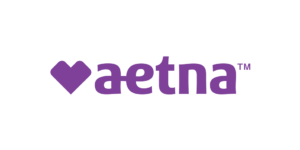
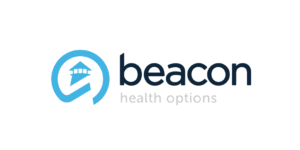
Meth’s toll isn’t only psychological—it can ravage teeth, skin, sleep cycles, and basic nutrition. A full meth addiction treatment plan therefore includes a parallel track focused on physical repair:
Within your first week, clinicians order lab panels that check hormone levels, liver and kidney function, electrolytes, and vitamin deficiencies. Results guide individualized supplement plans (such as vitamin D, B-complex, and magnesium) and referrals to specialists for concerns like “meth mouth” or skin infections.
Years of appetite suppression often leave people under-nourished and dehydrated. Licensed dietitians design meal plans rich in lean proteins, complex carbs, and antioxidant-packed fruits and vegetables to stabilize blood sugar and rebuild muscle.
For anyone struggling to keep food down, smoothies and high-calorie shakes bridge the gap until normal hunger cues return.
Chronic insomnia is common after long stimulant binges. Meth rehab provides quiet evenings, blue-light limits, and non-addictive sleep supports such as melatonin, light therapy, or mindfulness-based relaxation. As circadian rhythms reset, mood and cognitive focus improve, making therapy stickier.
The program begins with low-impact activities such as stretching, gentle yoga, or supervised walks to prevent overexertion of an already stressed cardiovascular system.
Over several weeks, clients progress to resistance bands, body-weight circuits, and eventually gym sessions that help rebuild dopamine sensitivity healthily. Exercise also boosts natural endorphins, helping curb cravings and anhedonia.
Staff constantly emphasize the importance of water intake to counteract past dehydration and help the kidneys flush out residual toxins. Clients learn to identify early signs of electrolyte imbalance, heat exhaustion, and other risks unique to post-meth recovery.
Weekly check-ins record weight, blood pressure, and sleep hours so you see tangible proof that your body is healing, even on days when psychological progress feels slow.
By pairing evidence-based counseling with this targeted physical-health protocol, Lexington Addiction Center’s outpatient ladder (PHP → IOP → OP) ensures that the mind and body recover together.
The result is a sustainable foundation for long-term sobriety—proof that meth’s damage is not permanent when comprehensive care is in place.
When you enter a meth addiction rehab near me like Lexington Addiction Center, you can expect a structured, supportive environment focused on healing and long-term success.
Each day typically includes a mix of individual therapy, group sessions, and holistic activities to support mental and physical well-being.
Consider beginning your day with mindfulness or a light physical activity like yoga, followed by a morning group therapy session.
Afternoons often include one-on-one counseling, educational workshops, or trauma-focused care like EMDR. We also incorporate time for reflection, meals, and peer connection.
Peer support is an essential part of our program—sharing experiences with others on the same path helps reduce shame and build a sense of community. Family involvement is also encouraged through therapy sessions that work to rebuild trust and strengthen support systems at home.
Every element of our meth treatment program is designed to help you overcome addiction in a compassionate, evidence-based way.
Whether you’re searching for local meth drug rehab or just beginning to explore treatment, we’ll guide you every step of the way.
Recovery doesn’t end at graduation—it grows in community.
Lexington Addiction Center’s alumni program hosts monthly meet-ups, volunteer days, and private social media groups where graduates share successes and setbacks.
On-site, certified peer recovery coaches offer one-on-one check-ins for the first year following treatment.
We’ll also connect you to the broader Lexington recovery community, including 12-Step meetings, SMART Recovery, and Refuge Recovery groups within a 15-mile radius.
These layers of accountability and fellowship make relapse far less likely and keep motivation high long after formal treatment ends.




One call is all it takes to turn uncertainty into a clear, step-by-step plan for freedom.
Your future doesn’t have to be defined by meth. If you’re ready for your fresh start, our team is here to guide you every step of the way.
Meth addiction treatment in Lexington, KY, at Lexington Addiction Center combines proven science with genuine care, providing you with the tools to achieve lasting recovery.
The sooner you act, the sooner recovery can begin.
We offer a structured three-tier outpatient ladder:
PHP (Partial Hospitalization Program): 6–8 hours of therapy, 4–5 days a week
IOP (Intensive Outpatient Program): 3–4 hours of therapy, 3–5 days a week
OP (Outpatient Program): 1–2 hours per week of therapy or relapse prevention
Clients enter at the level that matches their needs and step down as they build stability.
We use a blend of evidence-based and holistic therapies, including:
Treatment typically lasts 30–90 days, depending on:
You’ll move from PHP to IOP to OP as you heal, with care tailored to your needs and schedule.
Yes. Most major insurers—including Anthem, Aetna, Cigna, Humana, UnitedHealthcare, and Kentucky Medicaid—offer partial or full coverage. Our admissions team will verify your benefits, explain costs, and discuss flexible payment plans if needed.
Lexington Addiction Center supports full-body healing with:
We offer:
These connections help reduce relapse risk and reinforce your long-term recovery goals.
It only takes three steps:
We’ll handle logistics, insurance, and your treatment plan—all with compassion and urgency.
Yes—absolutely. With the right medical, psychological, and social support, long-term recovery is not only possible—it’s sustainable. At Lexington Addiction Center, we treat the whole person, not just the addiction.
Because we combine:
Methamphetamine addiction often causes severe psychological withdrawal symptoms, including depression, paranoia, agitation, insomnia, and suicidal thoughts. The emotional crash following meth use can make relapse feel inevitable without structured care. Lexington Addiction Center provides comprehensive meth addiction treatment in Lexington, Kentucky.
Our program includes psychiatric monitoring, behavioral therapy, trauma-informed treatment, and structured relapse prevention support. While meth withdrawal may not always present the same physical risks as other substances, the emotional instability can be dangerous without professional care.
We address both the neurological impact of stimulant addiction and the underlying mental health conditions that may fuel continued use.
If meth addiction is disrupting your life, waiting will only make recovery more difficult.
Call Lexington Addiction Center today for confidential help, insurance verification, and immediate admissions support. A healthier future is possible.
The information presented on Lexington Addiction Center website pages is intended solely for general educational and informational purposes related to addiction treatment, medical detoxification, rehabilitation services, and recovery support. This content is not intended to serve as medical advice, diagnosis, treatment planning, or a substitute for professional medical care. Substance use disorders are complex medical conditions that require individualized evaluation by qualified healthcare professionals.
Detoxification and rehabilitation needs vary widely based on the type of substance used, duration and frequency of use, physical health, mental health history, co-occurring disorders, and other individual factors. Information discussing detox timelines, withdrawal symptoms, medications, or treatment approaches is generalized and may not apply to every individual. Treatment decisions should always be made in consultation with licensed physicians, addiction specialists, or behavioral health providers.
If you or someone you love is experiencing a medical emergency — including but not limited to overdose, seizures, loss of consciousness, breathing difficulties, chest pain, suicidal thoughts, or violent behavior — call 911 immediately or go to the nearest emergency room. Lexington Addiction Center does not provide emergency medical services through this website, and no online content should delay urgent medical intervention.
Attempting to detox from alcohol, opioids, benzodiazepines, or other substances without medical supervision can be dangerous and potentially life-threatening. Withdrawal symptoms can be unpredictable and severe. Any detox-related information provided is for awareness only and should never replace professional medical oversight.
Information regarding insurance coverage, treatment costs, or payment options is provided for general guidance purposes only. Insurance benefits vary by carrier, policy, state regulations, and medical necessity determinations. Coverage information is not guaranteed and may change without notice. Lexington Addiction Center strongly encourages individuals to contact our admissions team directly to verify insurance benefits, eligibility, and coverage prior to making treatment decisions.
While reasonable efforts are made to ensure accuracy, Lexington Addiction Center makes no warranties regarding the completeness or timeliness of website content. Healthcare regulations, clinical standards, and insurance policies evolve regularly. Reliance on any information provided is at your own risk.
This website may include references or links to third-party resources for informational purposes. Such references do not constitute endorsements. Lexington Addiction Center is not responsible for external content, services, or policies.
Use of this website does not establish a provider-patient relationship. Contacting Lexington Addiction Center does not guarantee admission or treatment. Recovery outcomes vary and are never guaranteed.
The content available on Lexington Addiction Center pages is designed to provide educational information related to addiction, detoxification, rehabilitation, and recovery. This information should not be interpreted as professional medical advice or treatment recommendations.
Addiction treatment is highly individualized. Detox and rehab needs vary significantly based on health history, substance use patterns, and mental health considerations. Information provided is general and may not apply to all individuals.
If an emergency arises — such as overdose, severe withdrawal symptoms, or immediate danger — call 911 without delay. Online resources are not a substitute for emergency medical care.
Medical detox should always be conducted under professional supervision. Attempting detox without medical oversight can be dangerous.
Insurance information is provided as general guidance only. Coverage varies by plan and carrier. Lexington Addiction Center encourages all individuals to verify benefits directly with admissions staff.
Recovery outcomes are not guaranteed. Treatment effectiveness depends on many factors including engagement, clinical needs, and aftercare support.
References to external resources do not imply endorsement. Lexington Addiction Center is not responsible for third-party content.
Website use does not establish a provider-patient relationship.
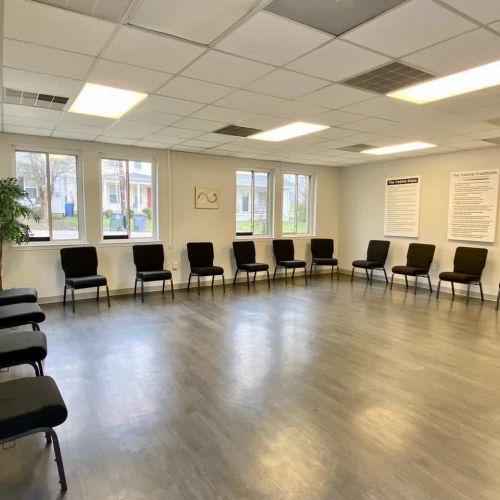







Get Family Support Now
We understand addiction affects the whole family. Our comprehensive family program helps rebuild trust and restore relationships.
Weekly Family Therapy Sessions
Educational Workshops
Support Groups
Communication Skills Training

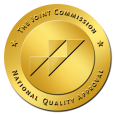



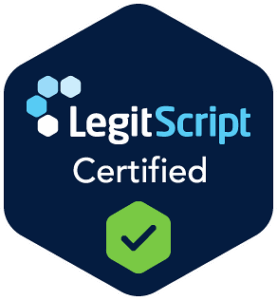
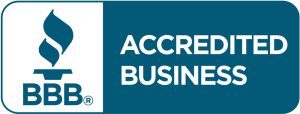



National Institute on Drug Abuse. (n.d.). Methamphetamine. Retrieved October 9, 2025, from https://nida.nih.gov/research-topics/methamphetamine Lexington Addiction Center
Bluegrass Intergroup of Alcoholics Anonymous. (n.d.). Find A.A. meetings in Central Kentucky. Retrieved October 9, 2025, from https://www.bluegrassintergroup.org/ Lexington Addiction Center
SMART Recovery. (n.d.). SMART Recovery—Find meetings & tools. Retrieved October 9, 2025, from https://www.smartrecovery.org/ Lexington Addiction Center
Refuge Recovery. (n.d.). Refuge Recovery meetings. Retrieved October 9, 2025, from https://refugerecoverymeetings.org/

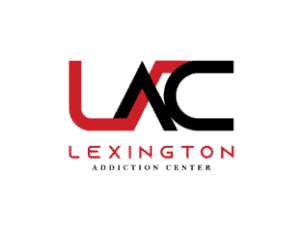
Addiction and co-occurring disorders don’t have to control your life. Lexington Addiction Center is waiting with open arms to give you the tools necessary for lasting change. Reach out to us today to learn more.